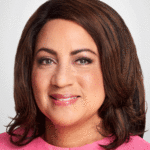It may be one of the most important decisions you will ever make — finding the right primary care doctor to take care of you.
Whether you’re getting a physical, undergoing a medical procedure or following a treatment plan, taking charge of your health care is critical.
The problem is there’s a nationwide shortage of primary care doctors, according to Consumers’ Checkbook.
A primary care provider (PCP) is a health care practitioner, usually a doctor, who sees people that have common medical problems. Your PCP is often involved in your care for a long time. Therefore, it is important to choose someone with whom you will work well, according to a National Library of Medicine webpage.
“We find that many patients just have a lot of trouble when they need a new doctor,” Kevin Brasler, Consumers’ Checkbook executive editor, said. This includes finding one who is accepting new patients, or finding someone who is in their health insurance plan’s network.
Brasler said many physicians are requiring patients to pay thousands yearly to sign up with the practice. He suggested getting recommendations about a doctor before you go and ask questions “which are essential to good health care,” such as: Do they listen to you and communicate well? Do they coordinate your care?
When you find one you like, Brasler suggested asking other patients about that physician and the practice.
“Another thing you can do is you can look whether the doctor is board certified and whether or not the doctor has continued their board certification,” Brasler said. “Whether they’re up-to-date on their training.”
Brasler recommended checking for any malpractice lawsuits and disciplinary actions against the doctor you want to see.
Through a special arrangement with Washington Consumers’ Checkbook, WTOP.com readers can see all of Checkbook’s ratings and advice for a limited time.
Consumers’ Checkbook/Center for the Study of Services is an independent, nonprofit consumer organization founded in 1974. It has been an innovator in providing information to help consumers make smarter choices for more than 40 years.








